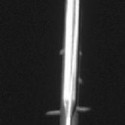01 Apr Do Intra-aortic Balloon Pumps Improve Heart Attack Survival?
 MedicalResearch.com Interview with:
MedicalResearch.com Interview with:
Sayan Sen, PhD
International Centre for Circulatory Health, National Heart and Lung Institute
Imperial College London
London, United Kingdom
Medical Research: What is the background for this study? What are the main findings?
Dr. Sayan Sen: Intra-aortic balloon pumps (IABP) are often used in Acute Myocardial Infarction, particularly in patients with cardiogenic shock. We analysed the available Randomized Controlled Trials (RCT) and observational studies, spanning 30 years, to establish the evidence for this use.
There is no identifiable group of patients with Acute Myocardial Infarction that have been demonstrated to derive a mortality benefit from insertion of an IABP. The studies, including over 17000 patients, have studied mortality in patients receiving IABP in comparison to mortality of patients that received no IABP in the era of no reperfusion, fibrinolysis and primary percutaneous intervention. This lack of mortality reduction with IABP in AMI is consistent in patients with and without cardiogenic shock across both RCTs and observational studies; questioning the continued use of this technology in Acute Myocardial Infarction.
Medical Research: What should clinicians and patients take away from your report?
Dr. Sayan Sen: Insertion of Intra-aortic balloon pumps in patients with Acute Myocardial Infarction does not reduce mortality regardless of haemodynamic status.
The observational studies that hinted towards a possible benefit of IABP in patients with AMI and cardiogenic shock were confounded by clear inequality of baseline risk factors of patients between the competing therapies; with clinicians preferentially allocating lower risk patients to Intra-aortic balloon pumps, resulting in apparent lower mortality with IABP. When this is taken into account the same observational studies did not establish a mortality benefit for Intra-aortic balloon pumps in AMI.
Medical Research: What recommendations do you have for future research as a result of this study?
Dr. Sayan Sen: The assessment of the relative efficacy of competing therapies should be established by RCTs. The use of observational data may be appealing as they are easier and cheaper to perform and include ‘real world’ patients that may have been excluded by the strict inclusion and exclusion criteria of RCTs; however, due to a lack of blinding, they are prone to bias that can result in misleading results.
Whilst RCTs are not vulnerable to this they are more difficult and expensive to perform. RCTs comparing competing therapies in the future should therefore be designed so that they include clinically relevant patients and are of sufficient magnitude to ensure that their results can be extrapolated to the patients seen in clinical practice.
Citation:
MedicalResearch.com Interview with: Sayan Sen, PhD (2015). Do Intra-aortic Balloon Pumps Improve Heart Attack Survival?
Last Updated on April 1, 2015 by Marie Benz MD FAAD
